
 |
|
|
Vegetables
Volume 64 Number 2 Date 05/09/2019 SEEDCORN MAGGOT - Vegetable growers are reminded that spring applications of compost should be incorporated at least two weeks prior to planting to avoid seed maggot (SCM) problems in spring-seeded crops. Any green manure or cover crops should also be plowed down two weeks prior to planting. Because field conditions are highly conducive for SCM damage this spring, growers may want to consider delaying planting until soils are adequately warm for rapid germination and early seedling growth. The map below shows SCM degree day accumulations as of May 9. Peak fly emergence is forecast for 360 degree days (sine base 39°F). COMMON ASPARAGUS BEETLE - Beetle emergence and the start of egg deposition on asparagus spears is forecast to begin late next week (by May 17) in southern Wisconsin. Examining plants for adults and eggs on warm, sunny afternoons when the beetles are most active is suggested. Control may be warranted if 5-10 beetles are found per 100 spears, or eggs are present on at least two of 100 of spears, ferns, or flower buds. Handpicking the adults early in spring, especially in small gardens, can be effective. CABBAGE MAGGOT - The peak emergence window for first-generation flies will open around May 11 in the southernmost tier of counties, with egg laying expected to last approximately one week. This event coincides with full bloom of lilac and the accumulation of 300 degree days (simple base 43°F). Seedlings, transplants, or spring root crops available at the time of peak flights should be protected with row covers installed well before adults begin to emerge. Growers can monitor fly populations with yellow sticky traps or yellow plastic bowls filled with soapy water placed at 100-foot intervals along field edges and inspected every 4-6 days to determine if fly counts are increasing or decreasing. The same method is also effective for trapping seedcorn maggot flies. Transplanting cole crops one week before or after peak fly emergence is recommended to avoid the primary damage period. Cabbage maggot degree days as of May 8 are as follows: Beloit 285, Madison 277, Racine 191, La Crosse 261, Eau Claire 193, and Wausau 114. FLEA BEETLES - Spinach, chard, kale and other early-seeded and transplanted leafy vegetables should be inspected regularly for the initial two weeks after emergence (or transplant date) when young plants are most susceptible to flea beetle damage. Row covers, when installed early and properly, are effective at keeping beetles out of crops during the seedling stage. These barriers must be removed before the flowers develop to allow pollinating insects access to the plants. Established control thresholds for flea beetles vary by crop, but start at two beetles per plant for tomatoes and eggplant less than three inches. For cole crops and horseradish, control may be considered when the beetles cause stand reduction on small plants. -- Krista Hamilton, DATCP Entomologist 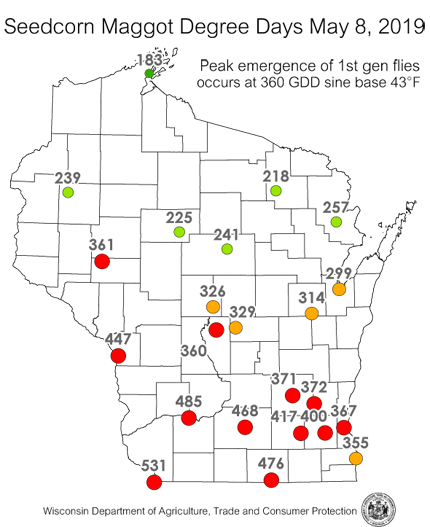
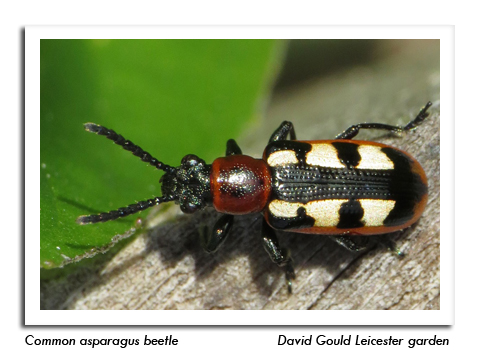
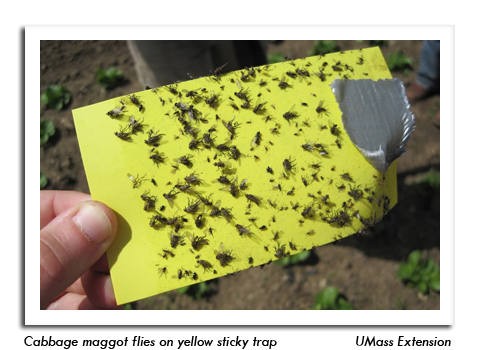
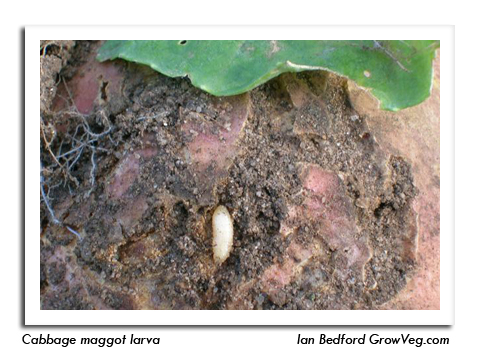
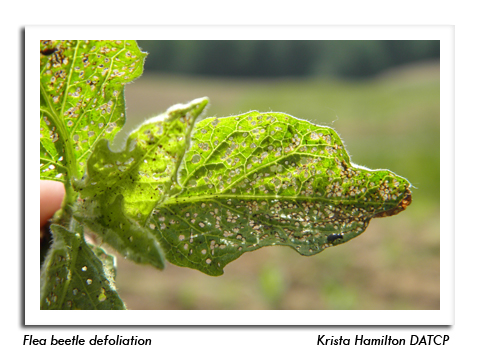
|
|
|